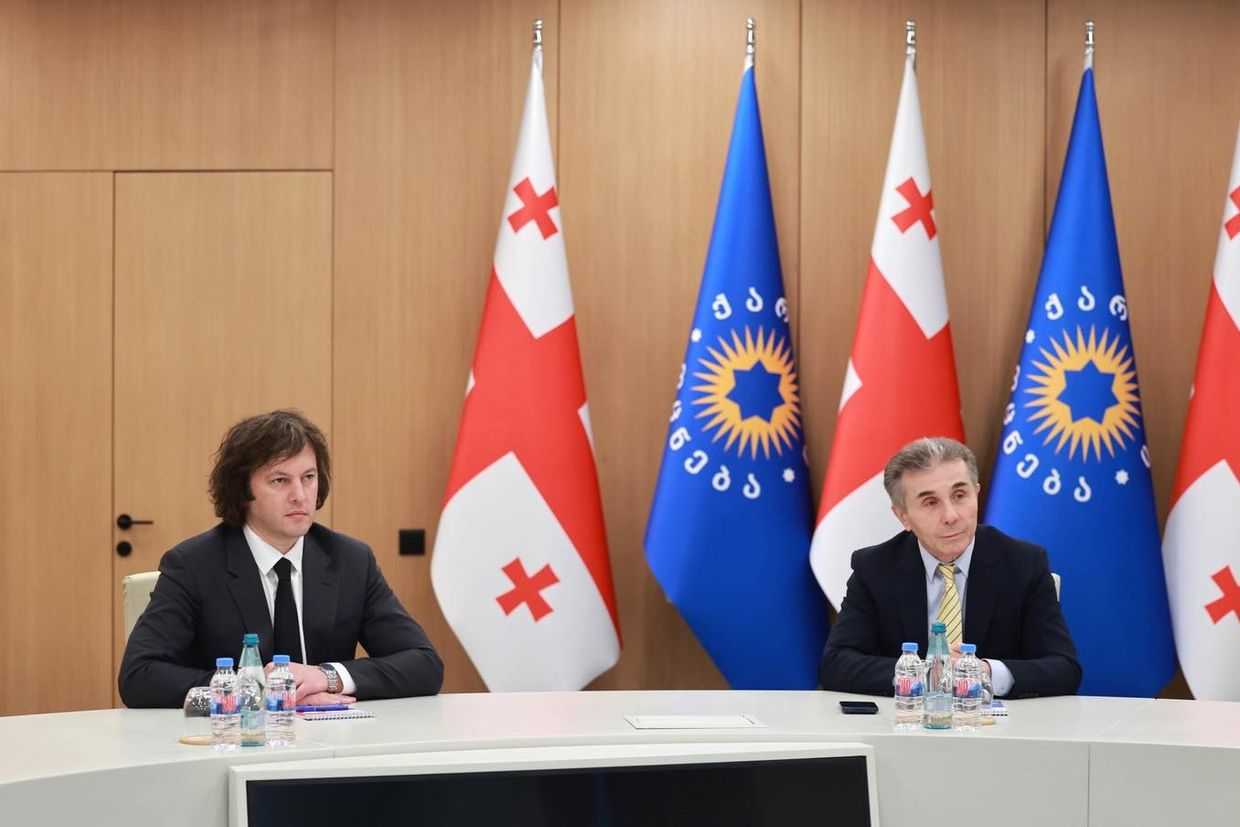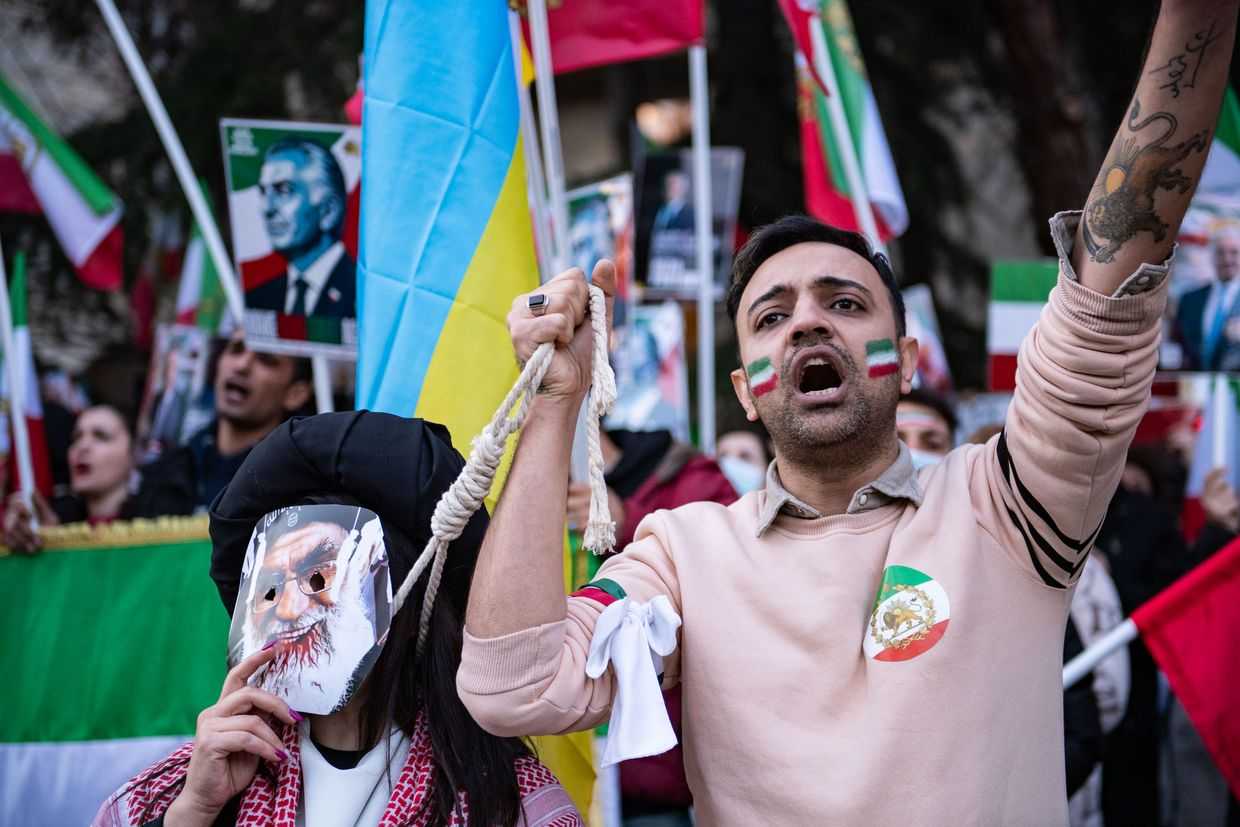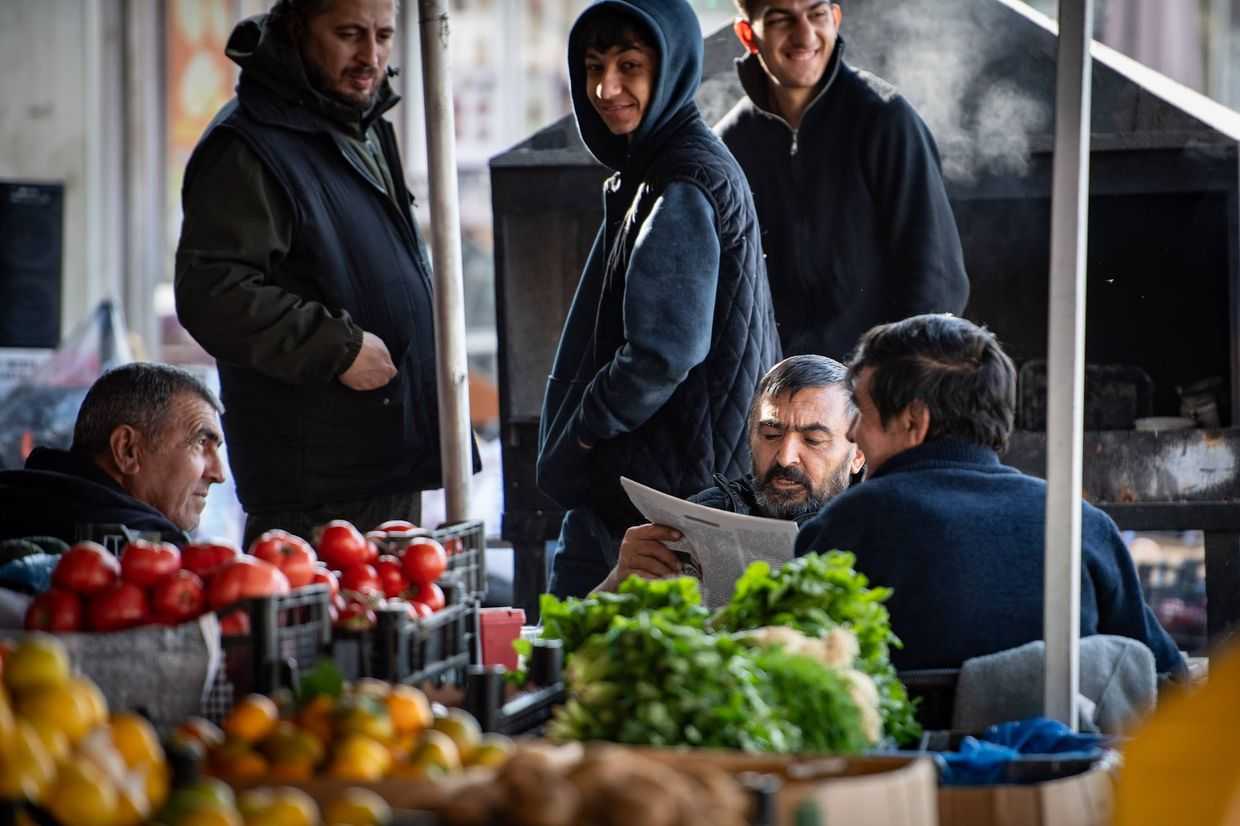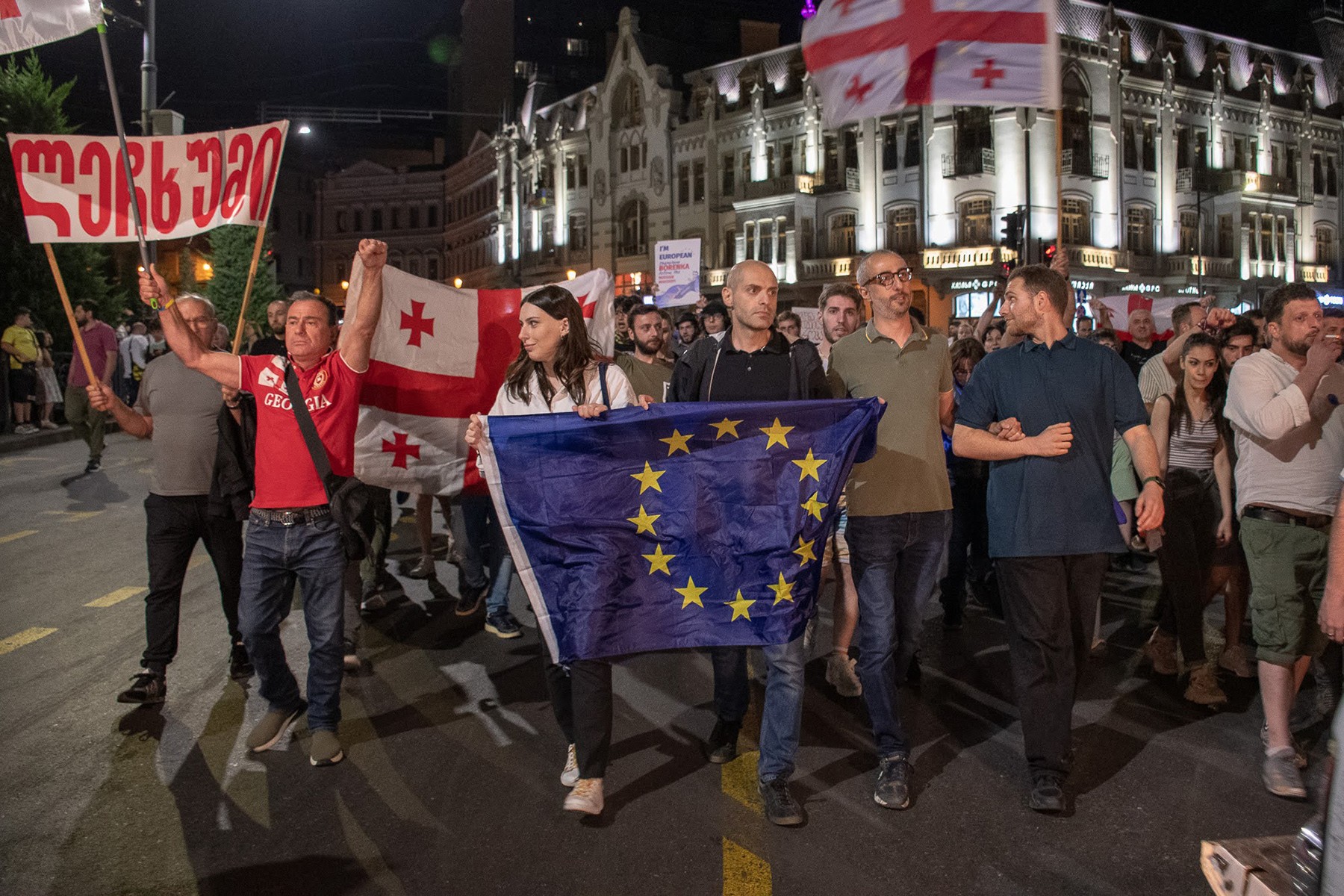
Home to Europe, a platform of several civil society groups, held its third mass protest in Tbilisi on 3 July — the deadline of the ultimatum it had given the government to resign by.
After camping outside the government offices, the leaders of the Shame Movement, one of the key groups within Home to Europe, announced the end of the protest.
Shame claimed that they had ‘symbolically’ discomforted the government by preventing it from holding its cabinet meeting in the morning.
Protestors camped outside the government offices in Tbilisi following the expiration of the ultimatum they had previously given the government on 24 June.
The protests renewed on 3 July as tens of thousands of Georgians took to the streets of Tbilisi to protest the government’s failure to secure the country’s EU Candidacy status — the third large-scale protest of its kind in less than a month.
[Read more on OC Media: EU denies Georgia candidate status]
Last month, protest leaders said that a government of ‘national consent’ must be formed with the agreement of the ruling party, opposition, and civil society groups. They said this government must fulfil all of the 12 points outlined by the EU before Georgia’s membership application could be reexamined.
The rally on Sunday was expected to be larger than the previous two, as organisers, helped by major opposition parties that had taken a backseat in directly leading the June demonstrations, tried to mobilise Georgians from outside of Tbilisi.
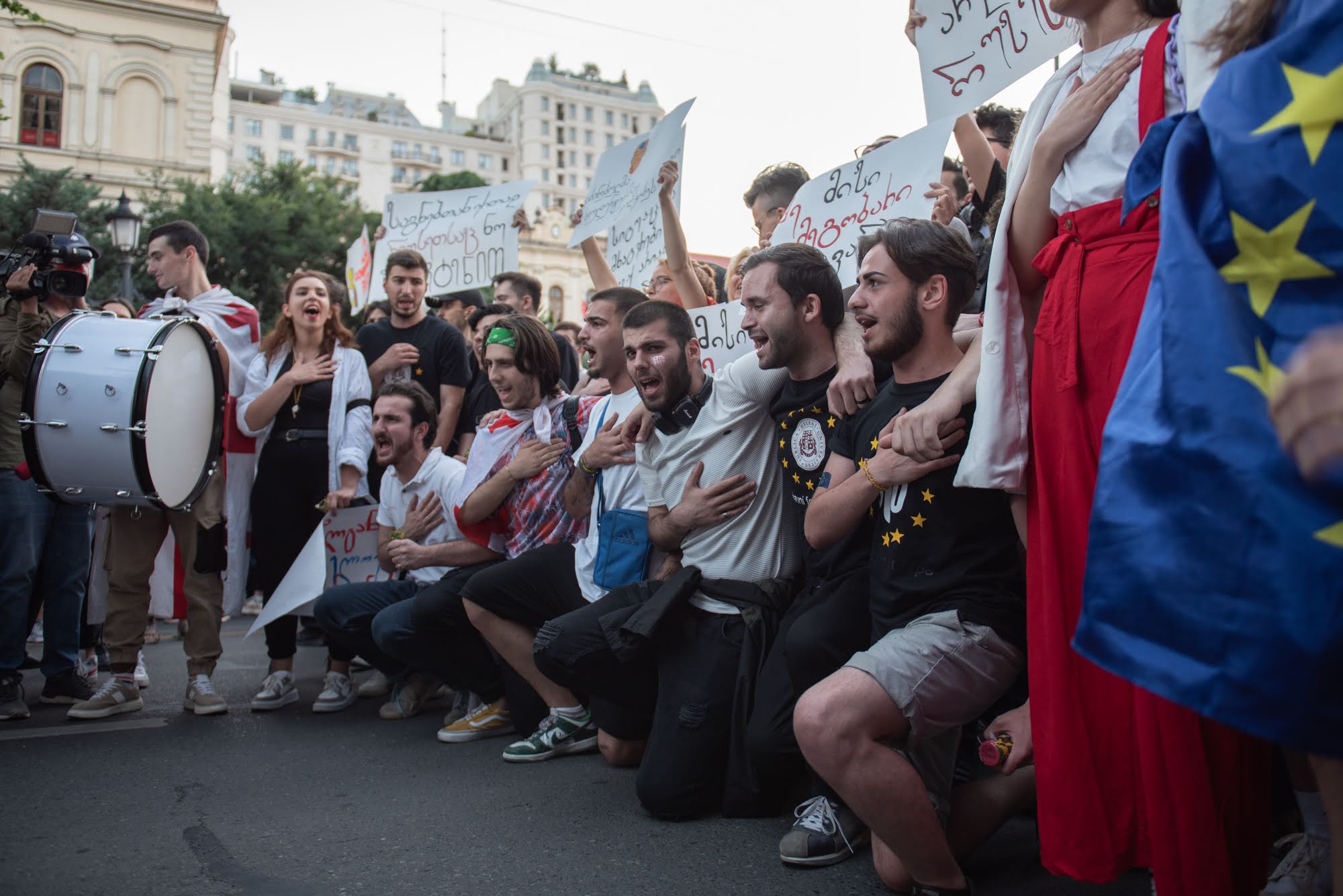
Despite expectations, however, the rally appeared to attract a smaller, albeit still sizeable crowd. The rallies on 20 and 24 June were each estimated to have attracted at least 100,000 people in Tbilisi, making them one of the largest rallies seen in Georgia since 2012.
Some protesters, including those close to the formerly ruling United National Movement party (UNM) and supporters of ex-President Mikheil Saakashvili, audibly expressed their discontent with the protest leaders as the number of rallygoers began dwindling before Home to Europe’s announcement at midnight.
‘Drooling slaves and liberasts’
Following the announcement, a couple of hundred rallygoers broke away from the main demonstration in front of the Georgian parliament to hold a protest outside the offices of the ruling Georgian Dream (GD) party.
In anticipation of the oncoming protestors, GD lawmaker Dimitri Samkharadze who was at the party headquarters at the time, called the demonstrators ‘drooling slaves’.
On.ge reposted a video that was no longer available on Samkharadze’s Facebook page, showing the lawmaker hurling insults at protestors, vowing to rape their mothers, calling them ‘chickens’ (a homophobic slur), and denouncing Saakashvili and his ‘party of war’.
[Read more on Georgian Dream’s war claims on OC Media: Prominent Georgian Dream MPs ‘leave party’ to float EU conspiracy]
In recent years, Samkharadze, who has remained tight-lipped in parliamentary discussions, has extensively used Facebook to attack government critics.
In their speeches, protest leaders, including Giorgi Mshvenieradze from the Defenders of Democracy group, condemned Samkharadze’s behaviour but reiterated their protest would remain peaceful.
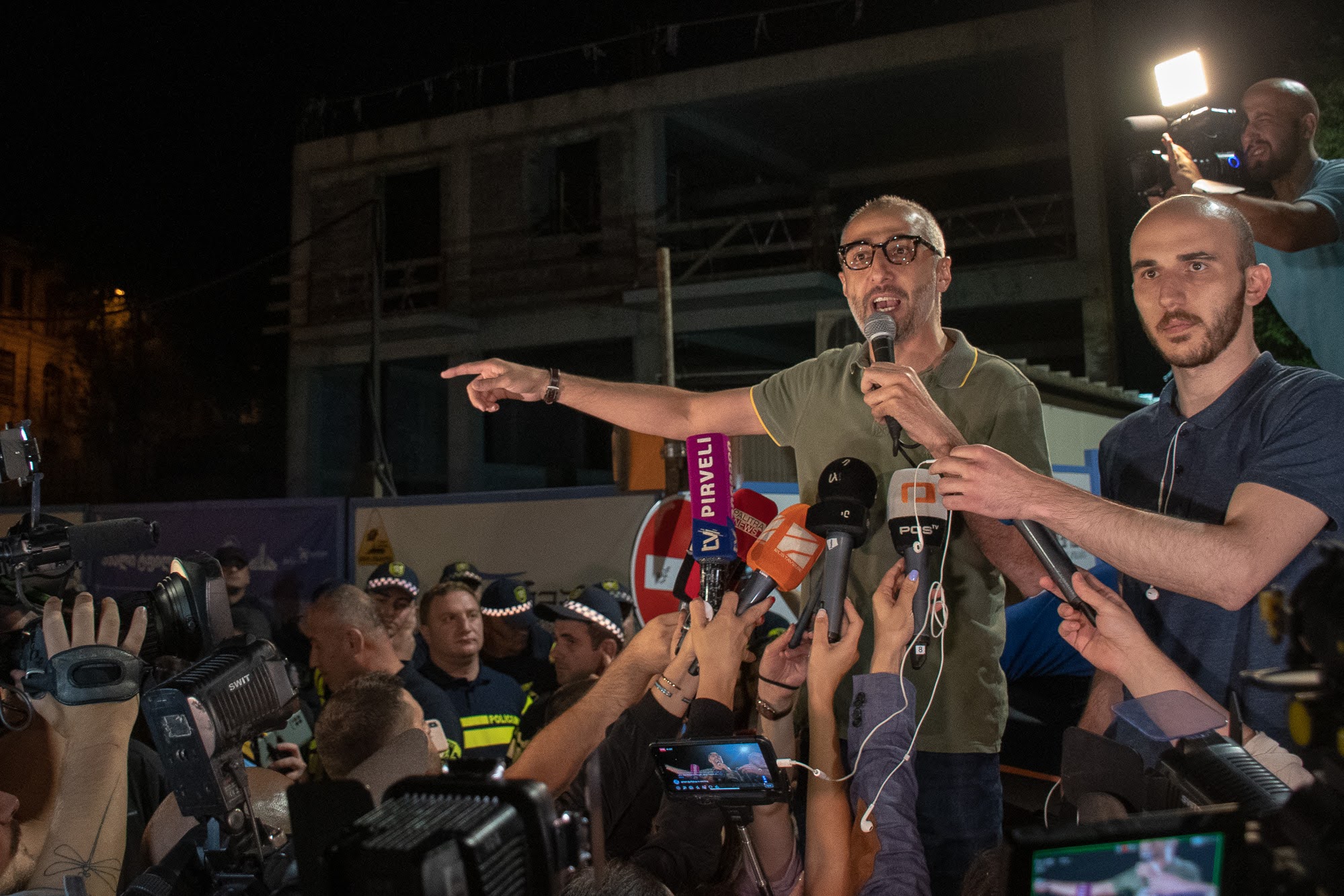
An hour later, the protesters rejoined the remaining core group outside the Parliament building.
Another group of protesters later moved to the area in front of the government offices nearby, while Rustaveli Avenue was eventually unblocked.
On 4 July, Georgian news agency Interpressnews quoted Tornike Rizhvadze, head of the Government of the Autonomous Government of Adjara in Georgia and a member of Georgian Dream’s political council, as also doubling down on his homophobic rhetoric against government critics, referring to them as ‘liberasts’.
Liberast is a portmanteau of paederast — a homophobic slur used against gay men — and liberal. This neologism is frequently used by Georgia’s far-right and pro-Russia groups.
President Zurabishvili unimpressed
Soon after the protest demonstration peaked on Sunday, Georgian President Salome Zurabishvili criticised calls by the ‘radical opposition’ for the government’s resignation as well as Georgian Dream’s announced plans for reforms, blaming both sides for failing to live up to their commitment to seek national unity.
In recent months, Zurabishvili has campaigned to seek ‘national accord’, an initiative that left most of those involved in it sceptical about her quest and criticising its ambiguous endgame.
However, the Georgian President has tried to express a clearer mission and role to reach ‘national accord’ in light of the EU’s expectation of Georgian political leaders to tackle ‘political polarisation’, and her improved popularity following her vocal support of Ukraine.
Georgian Dream chair Irakli Kobakhidze vowed on 1 July to fulfil all of the 12 recommendations the EU set for Georgia as a prerequisite to reexamine its membership candidacy status by the end of the year. The promises voiced by Kobakhidze included setting up a Parliament-based ‘Polarisation Monitoring Group’ as well as a ‘moratorium on aggressive rhetoric’.
Zurabishvili has not yet commented on the ruling party’s plans to go forward with the institutional reforms, driving some to deride her criticisms of the ruling party as ‘lacking depth and specifics’.



